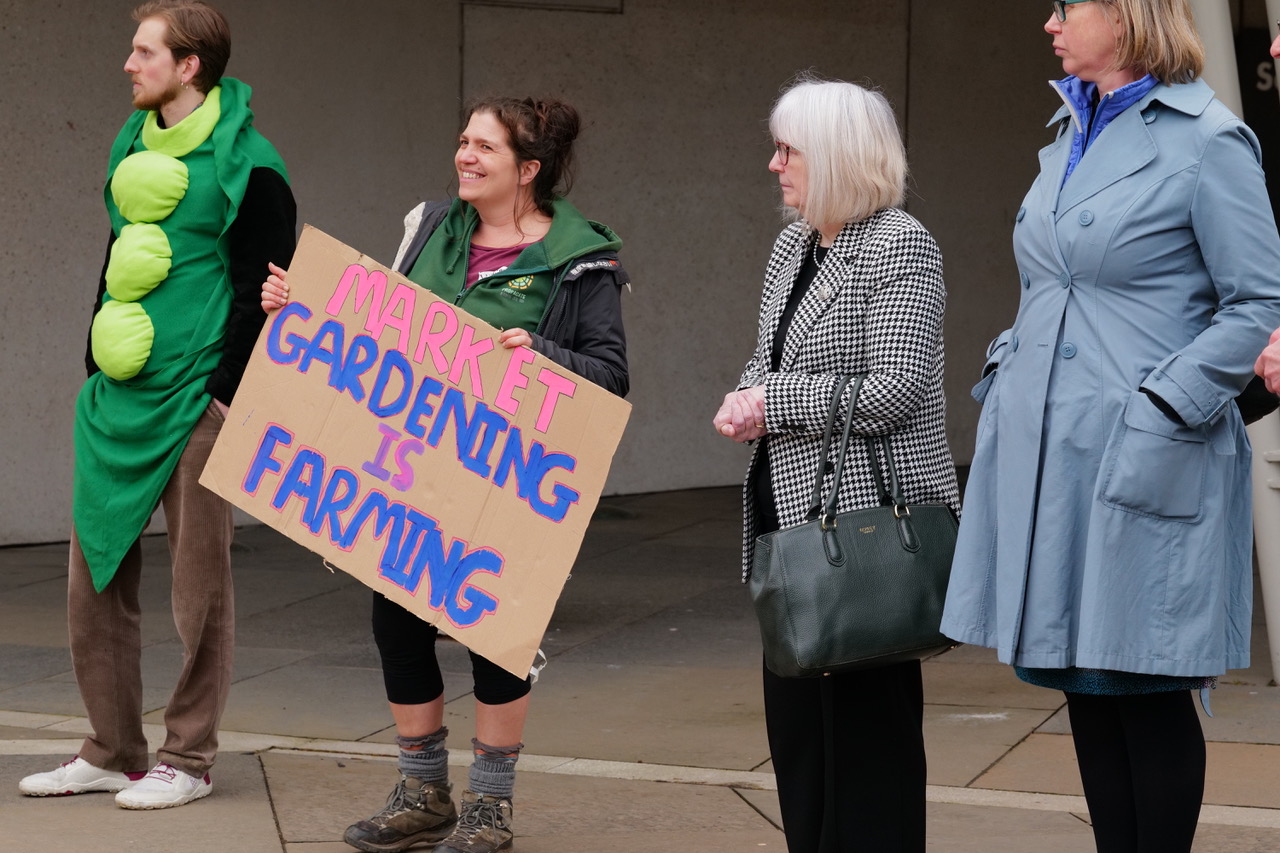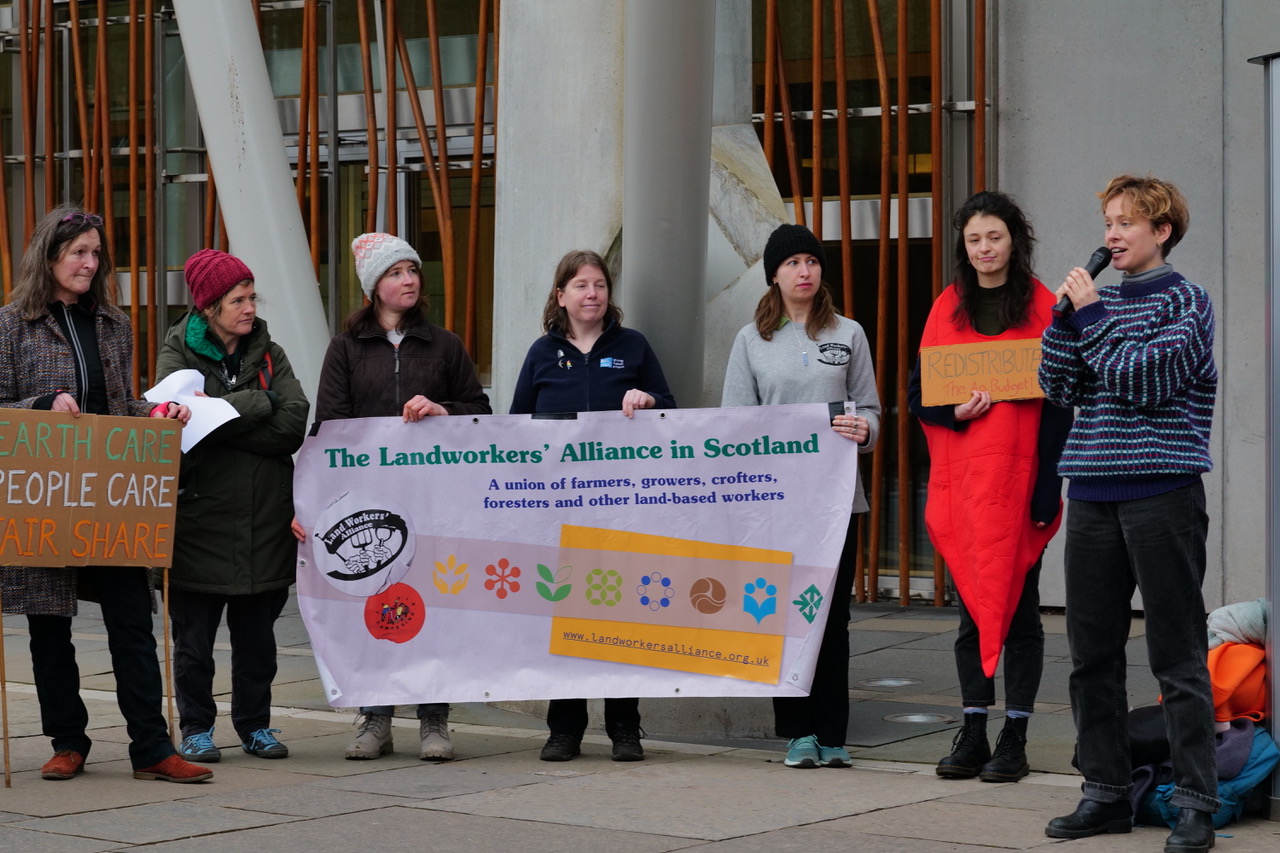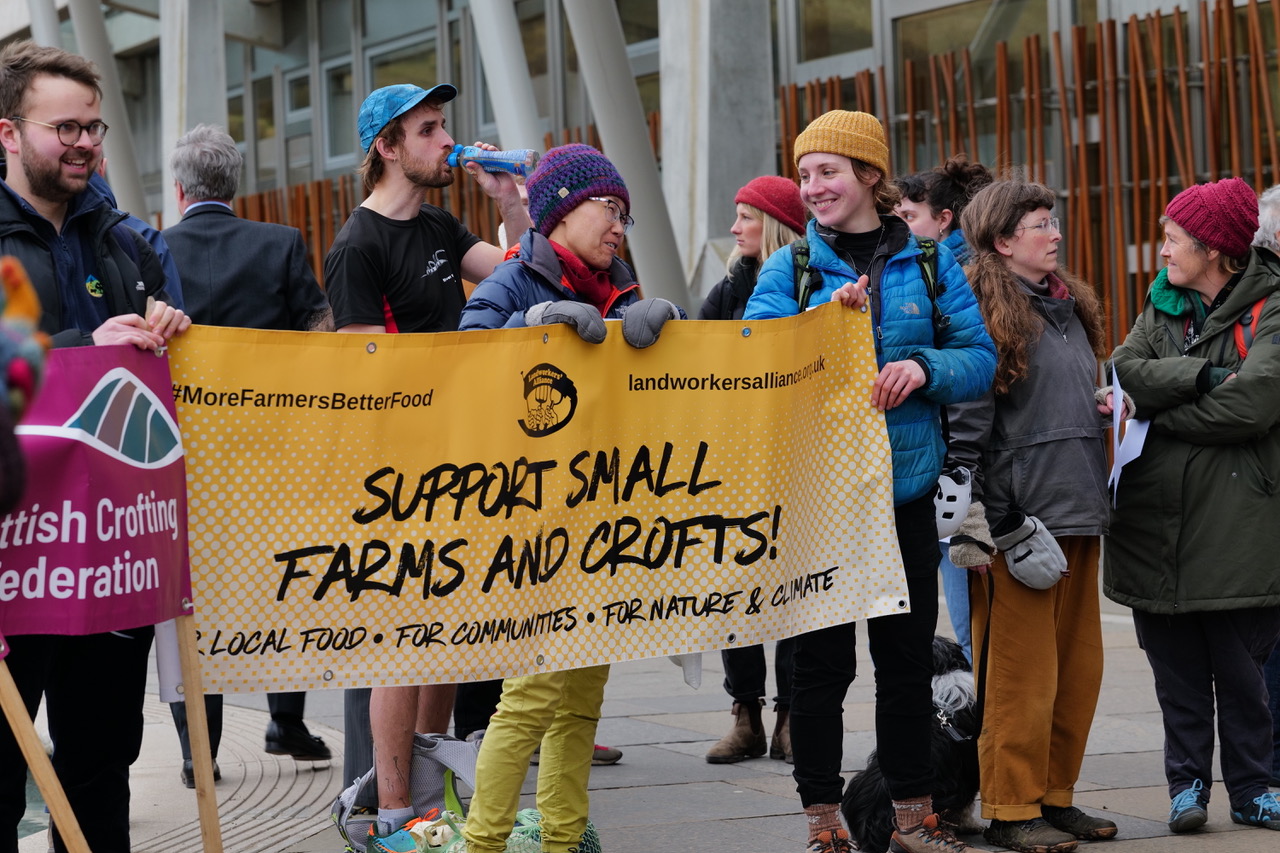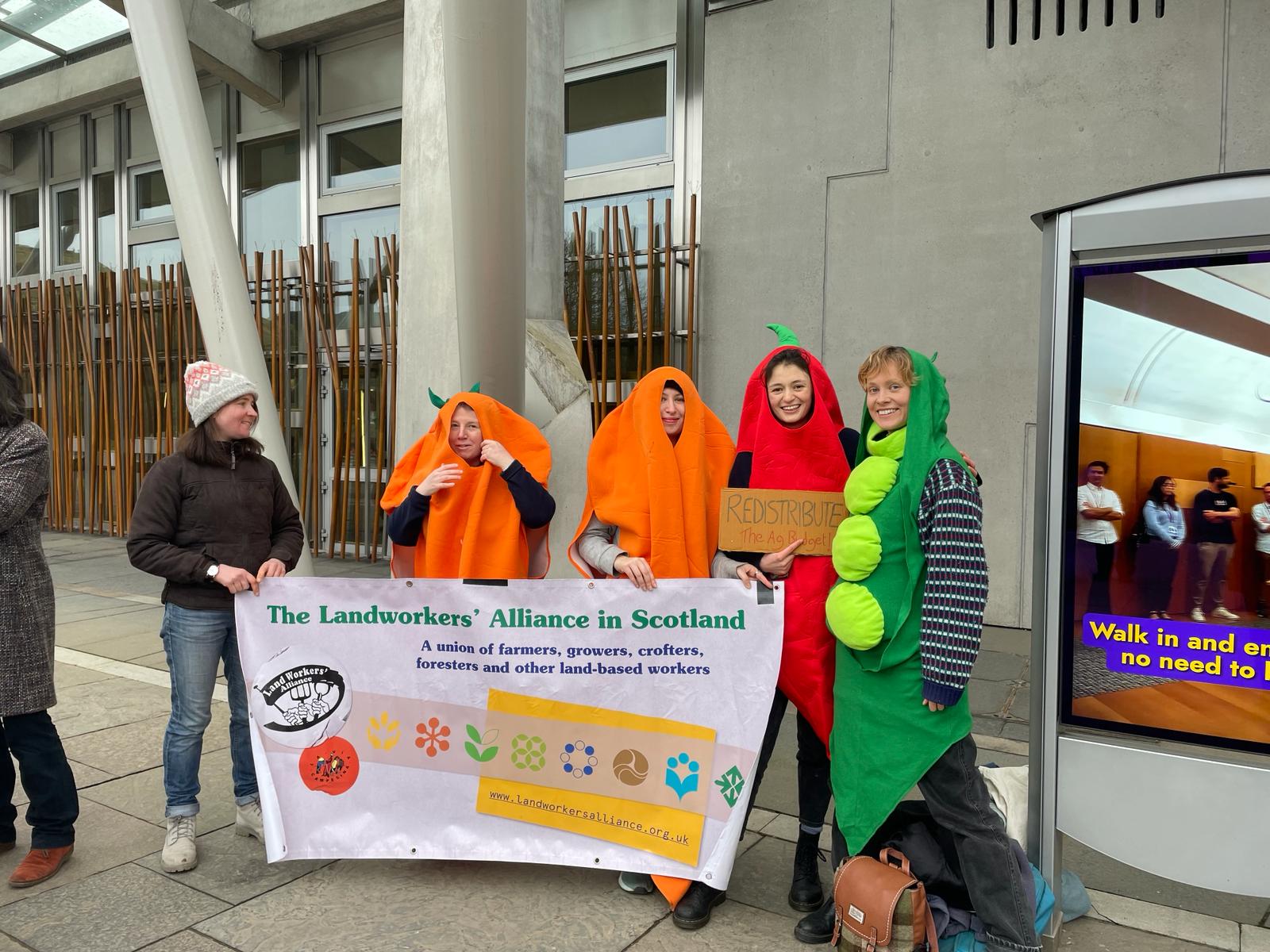Yesterday afternoon, Monday Feb 19th, Landworkers’ Alliance members and other small-scale food producers and crofters from across Scotland gathered outside Scottish Parliament to demand Scottish politicians do more to support their farms and businesses in the Agriculture Bill.
The demo was organised by Landworkers’ Alliance, The Scottish Crofting Federation, Soil Association Scotland, Nature Friendly Farming Network, Nourish Scotland and Propogate Scotland, and was attended by farmers, campaigners and MSPs, all calling for more support for small-scale farms in Scotland.
Under the current CAP system in Scotland, farming subsidy payments are awarded per hectare of land, so those with the most land receive the most money. But we’re concerned that if the Scottish government fail to make sure future direct payments are distributed fairly among farms of all sizes, then the bulk of this budget will end up in the hands of Scotland’s wealthiest landowners, while small and medium farms and crofts will receive next to nothing in comparison.


The current system under CAP means that less than 10% of farms – those often owned by wealthy business tycoons and aristocrats – receive more than half of the total agricultural budget. However, despite the numerous environmental, public health, and social benefits that enterprises like market gardens, crofts, and community farms provide to their local landscapes and communities, these businesses have historically received little to no compensation or support from the state.
The Agriculture and Rural Communities Bill and subsequent subsidy reforms present a once-in-a-lifetime opportunity to create a fairer farming system in which smaller and medium scaled family farms and crofts are properly rewarded for their invaluable contribution to Scotland’s food system, environment, and communities.
In collaboration with other farming and crofting organisations, we’ve therefore been calling for a commitment to a redistributive payment, which would ensure a higher payment for the first few hectares to allow for smaller and medium scale farms and crofts to benefit properly.
Tara Wight, LWA’s Scotland Policy and Campaigns Coordinator said:
“The area-based ‘direct payments’ system gives huge amounts of public money to wealthy landowners, while the small- and medium-scale farmers, growers and crofters who produce our food and support nature restoration are struggling to make ends meet.
It is shocking that the government has announced such a large proportion of the budget will be awarded as direct payments without mentioning any mechanism for redistributing funding to those who need it most, and without suggesting any cap on the amount of money large-scale industrial farms will receive. This is not the ‘just’ transition we have been hearing so much about.”


LWA Member Jo Hunt, a crofter and market gardener from Dingwall spoke at the demonstration, in his speech he said:
“I haven’t had any subsidies to help run my farm, and this has-been okay for the past 2 20 years or so. But now costs have increased by 20% across the board, and I’m paying more to the bank, more to oil companies and more for utilities. And our customers haven’t left us – they’re still wanting to access the food we produce – but they’re all spending around 15% less because they’re struggling too.
I have to come to the conclusion that because of these factors, this season we’re not planting vegetables. I’m here today to ask to be paid for the public goods that I produce. When I feed people in my community it’s a public good. When I employ my staff it’s a public good. When I store carbon in my soils it’s a public good.”
The demo was also attended by Ariane Burgess, Scottish Greens MSP for Highlands and Islands, she said:
“In a Good Food Nation, we must ensure that local, small-scale food producers receive a fair income. But growers, farmers and crofters on less than 3 hectares of land are not eligible for the basic ‘income support’ that so many other farms and crofts rely upon.
As the Scottish Green Rural Affairs spokesperson, I am working to secure more support for our valued local growers, and for other farmers and crofters who want to start growing some veg. This would provide excellent value for money, through benefits to health, climate and nature, local economies, community wealth and food security. It could even be done without extra demands on the public purse, by redistributing farm support payments in line with social justice principles.”
For more information on the work we’re doing to advocate for small farms, crofts and market gardens in Scotland check out this blog post.
Photo credits: Jim Bond

